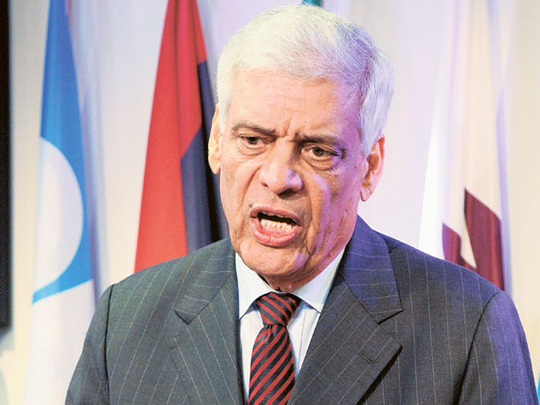
Dubai: Members of the Organisation of Petroleum Exporting Countries (Opec) yesterday agreed to a new production ceiling of 30 million bpd, their first new level in three years.
The decision follows a failed meeting in June when six members of the 12 Opec members including Iran and Venezuela opposed a decision to increase production in Saudi Arabia to make up for a drop in Libya.
"What has been significant is that Saudi Arabia got its way," Samuel Ciszuk, a consultant at KBC Process Technology, told Gulf News.
"The hawks called its bluff in June and Saudi Arabia delivered. It went unilateral and reminded everyone in November that they could go as unilateral as they wanted by raising its production as drastically as it did."
Opec expects global demand to increase by 1.1 million barrels a day next year while the International Energy Agency estimates the group will need to pump 30.2 million barrels to meet global demand.
Ciszuk said: "It pushes output to where demand is expected in 2012. It also signals to worried markets that there is ample oil available."
Opec secretary-general Abdullah Al Badri said individual national quotas won't be discussed while Libyan oil exports are still recovering from the country's conflict.
"I don't think we can expect individual quotas to be decided in June and I'm extremely doubtful we can expect it until sometime towards 2013," Ciszuk said.
Oil prices fell $3 (Dh11.02) yesterday following the agreement.
Removing tension
Ciszuk said the announcement should take tension away from prices. "The general economic outlook would indicate we might see an easing of the price but we also have remaining uncertainties such as Libya and Iraq," he said.
Gulf Arab producers have stated they prefer prices in the range of $80-$100 to help nurture global economic growth. However, according to Peter Grimsditch, editorial dir-ector at the Oxford Business Group, Iran's default position is to keep production down and prices up.
"Tehran is more concerned with the country's income than it is with the effect on the global economy of high oil prices," he said.
— with inputs from agencies












